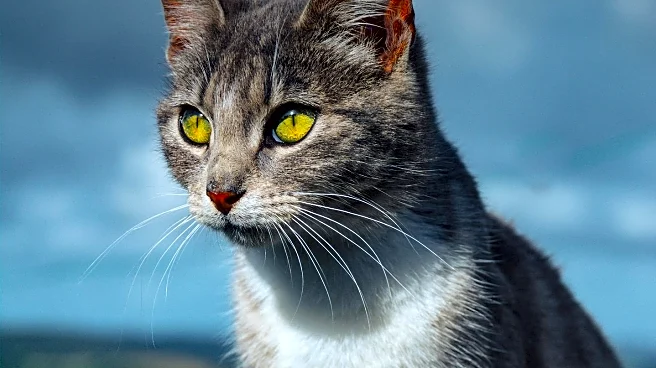What is the story about?
What's Happening?
The Feline Community Network, located in Hobart, is a unique shelter offering a second chance to cats, including those that are sick or injured. Founded by Michelle Duca, the shelter operates in a 10,000 square foot space and includes a cat-themed gift shop. The network is home to 86 cats, some of whom are blind or visually impaired, and provides a soothing environment free from harsh chemicals and noise disruptions. Duca, a lifelong animal rescuer, emphasizes the importance of matching cats with the right owners through a detailed adoption process. The shelter is community-focused, taking in cats that other shelters might not accept, and relies entirely on community funding.
Why It's Important?
The Feline Community Network plays a crucial role in animal welfare by providing a safe haven for cats that might otherwise be overlooked. By focusing on community engagement and support, the shelter not only helps animals but also fosters a sense of community involvement and responsibility. This approach highlights the importance of non-profit organizations in addressing gaps in traditional animal shelter services, particularly for animals with special needs. The shelter's efforts contribute to broader societal goals of humane treatment and responsible pet ownership, offering a model for other communities to emulate.
What's Next?
Michelle Duca plans to expand the shelter's reach by networking with other shelters and organizations. This initiative aims to enhance collaboration and resource sharing, potentially increasing the shelter's capacity to help more cats. Additionally, Duca is exploring undisclosed plans for early next year, which may involve further community engagement or expansion efforts. The shelter's strong online presence and community support are expected to play a significant role in these future developments.
Beyond the Headlines
The Feline Community Network's approach to animal rescue raises important ethical considerations about the treatment of animals in shelters. By providing a stress-free environment and focusing on the individual needs of each cat, the shelter challenges traditional models of animal care. This could lead to broader discussions about the standards and practices in animal shelters, potentially influencing policy changes and encouraging more humane treatment of animals across the industry.

















